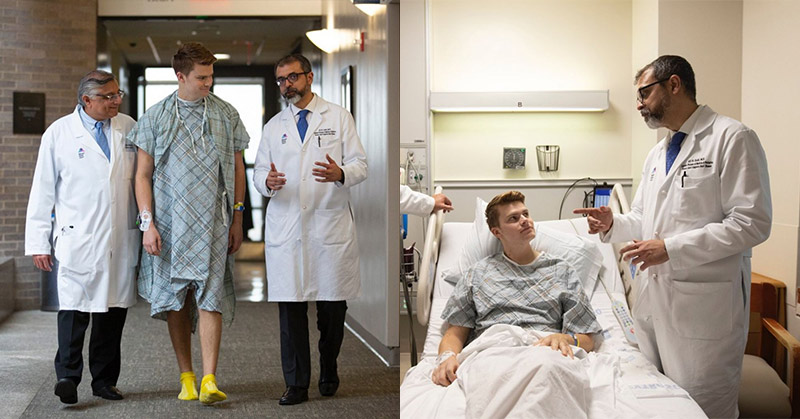Brad Phelps, a 22-year-old man from New Jersey, collapsed on the soccer field during his first match and experienced sudden cardiac arrest. His heart stopped beating for 12 minutes before paramedics were able to revive him with a defibrillator. He was rushed to Mount Sinai Hospital where doctors were not only concerned about his heart but also his brain.
Cardiac Arrest Versus Heart Attack
It’s important to understand the difference between cardiac arrest and a heart attack. A heart attack occurs when an artery is blocked, leading to damage in the heart but the heart continues to beat. On the other hand, cardiac arrest is caused by an electrical malfunction in the heart, resulting in an irregular heartbeat that can stop the heart from pumping blood effectively.
Danger to the Brain
Survival rates after sudden cardiac arrest are low, with concerns extending beyond the heart to the brain. Cerebral ischemia, caused by a lack of blood flow to the brain, can result in permanent brain damage or death of brain cells.
Hypothermia to Prevent Brain Damage
Therapeutic Hypothermia involves lowering the body temperature to prevent brain damage after cardiac arrest. This technique slows down chemical reactions and reduces inflammation in the brain to aid in the recovery process.
Congenital Heart Defects
Phelps’s cardiac arrest was linked to a childhood illness, Kawasaki disease, which can lead to long-term cardiac problems. It’s vital for individuals with congenital heart defects to continue monitoring their heart health as they age.
A Miraculous Recovery
Despite the odds, Phelps recovered miraculously with no brain damage. His story serves as a reminder for those with similar conditions to prioritize their heart health and maintain regular monitoring.
Sources
- “A 22-year-old’s heart stopped for 12 minutes. Doctors used hypothermia to help.” Today. Meghan Holohan. November 13, 2019.
- “Heart Attack and Sudden Cardiac Arrest Differences.” Heart
- “Sudden Cardiac Arrest: A Healthcare Crisis.” SCA
- “Cerebral Ischemia.” Columbia Neuro Surgery
- “Mild Therapeutic Hypothermia to Improve the Neurologic Outcome after Cardiac Arrest.” Nejm. February 21, 2002.
- “Sudden cardiac arrest briefly kills New Jersey man, 23; hypothermia used to prevent brain damage.” Fox News. Madeline Farber. November 14, 2019.
- “Kawasaki disease.” Mayo Clinic
- AHA Journals
This article was originally published in December 2019 and has since been updated.






